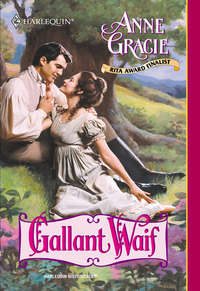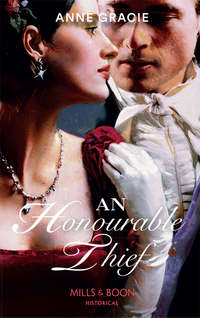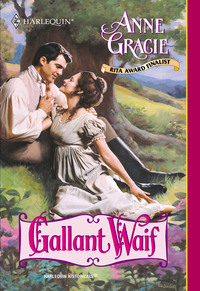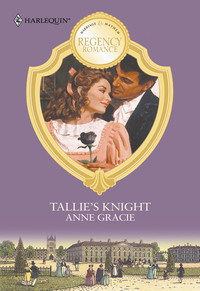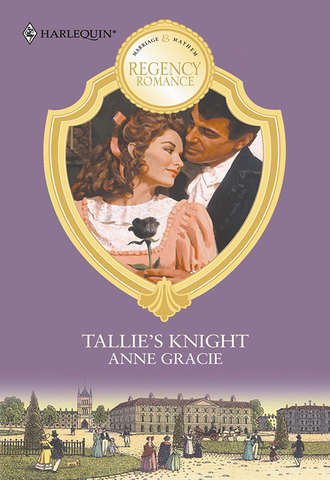
Полная версия
Tallie's Knight
Intrigued though she was, Tallie knew she should not encourage gossip about her cousin’s guests. And they had more than enough to do without wasting time in idle speculation. Or even idol speculation, she giggled silently, thinking of the Greek god.
‘Well, then,’ she said, ‘it is fortunate that we need not concern ourselves with Lord d’Arenville except to spend his money and present him with a reckoning. And if we need not worry about expense, the servants may be billeted in the village. I suppose we should begin to make a list of what needs to be done.’ She glanced at the clock on the mantel. ‘I am expected back in the nursery in half an hour, so we will need to hurry.’
Later that evening, as she walked slowly out of the nursery, leaving her three charges yawning sleepily in their beds, their loving goodnight kisses still damp on her cheeks, Tallie decided she would have to take herself more firmly under control. She could not go on in this fashion.
The degree of resentment she’d felt this morning had shocked her. And it was not Laetitia’s thoughtlessness Tallie resented, but the mere fact that she was coming home.
It was very wrong of her to feel like that; Tallie knew it. She ought to feel grateful to Laetitia for the many things she had done for her—giving her a home, letting her look after her children…And it was Laetitia’s home, Laetitia’s children. Laetitia was entitled to visit whenever she wished.
The problem lay with Tallie. As it always did. With her foolish pretences and silly, childish make-believe. It was getting out of hand, pretending, day after day, that these three adorable children were hers. And that their father, a dashing and romantic if somewhat hazy figure, was away on some splendid adventure, fighting pirates, perhaps, or exploring some mysterious new land. She had dreamed so often of how he would arrive home on his coal-black steed, bringing exotic gifts for her and the children. And when they had put the children to bed he would take her in his arms and kiss her tenderly and tell her she was his pretty one, his love, his little darling…
No. It had to stop. She was no one’s pretty one, no one’s darling. The children’s father was bluff, stodgy George, who drank too much and pinched Tallie’s bottom whenever she was forgetful enough to pass within reach. He never came near the children except at Christmas, when he would give them each a shilling or two and pat them on the head. And their mother was Laetitia, beautiful, selfish, charming Laetitia, ornament of the London ton.
Tallie Robinson was nothing—a distant cousin with not a penny to her name; a plain, ordinary girl with nothing to recommend her; a girl who ought to be grateful to be given a home in the country and three lovely children to look after.
There would never be a dashing knight or handsome prince, she told herself savagely. The best hope she had was that a kind gentleman farmer might want her. A widower, probably, with children who needed mothering and who would notice her in church. He would look at her plain brown hair and her plain brown eyes and her plain, sensible clothes and decide she would do. He would not mind that her nose was pointy, and marred by a dozen or so freckles—which no amount of lemon juice or buttermilk would shift. He would not care that one of her front teeth was slightly crooked, nor that she used to bite her nails to the quick.
Tallie looked down at her hands and smiled with pride at her smooth, elegant nails. That was one defect, at least, she had conquered since she left school. Her kindly gentleman farmer would be proud…Drat it—she was doing it again. Weaving fantasies with the slenderest of threads. Wasting time when there were a thousand and one things to be done to prepare for Cousin Laetitia’s house party. Tallie hurried downstairs.
The Russian Prince cracked his whip over the arched necks of his beautiful grey horses, urging them to even greater speed. The curricle swayed dangerously, but the Prince paid no heed—he was in pursuit of the vile kidnappers… No! Lord d’Arenville was not a prince, Tallie told herself sternly. She patted her hair into place and smoothed her hands down her skirts. He was real. And he was here to be with his intended bride. He was not to appear in any of her silly fantasies.
But Mrs Wilmot was right—he certainly was handsome. Tallie waited for her cousin to call her forward and introduce her to the guest of honour. He had arrived only minutes before, clad in a caped driving coat and curly brimmed beaver, sweeping up the drive in a smart curricle drawn by two exquisitely matched greys. Tallie knew nothing at all about horses, but even she could tell his equipage and the greys were something out of the ordinary.
She’d watched him alight, springing lightly down from the curricle, tossing the reins to his groom and stepping forward to inspect his sweating horses before turning to greet his hosts. And thus, his priorities, Tallie told herself ironically—horses before people. Definitely not a prince.
He was terribly handsome, though. Dark hair, thick and springy, short cropped against a well-shaped head. A cleanly chiselled face, hard in its austerity, a long, straight nose, and firm, unsmiling, finely moulded lips. His jaw was also long, squaring off at the chin in a blunt, uncompromising fashion. He was tall, with long, hard horseman’s legs and a spare frame. And once he’d removed his greatcoat she could see that the broad shoulders were not a result of padding, but of well-developed musculature. A sportsman, not a dandy…A pirate king… No! A haughty guest of her haughty cousin.
Tallie watched him greet Laetitia—a light bow, a raised brow and a mere touch of lips to hand. No more than politeness dictated. He was not one of her…cicisbeos, then. Tallie heaved a sigh of relief. It was not to be one of those house parties. Good. She hated it when her cousin used Tallie and the children to cover up what she called her ‘little flirtations’.
Laetitia turned to introduce him to those of the staff whose names he might need—the butler, the housekeeper and so on. Tallie watched him, noting the way his heavy-lidded grey eyes flickered indifferently over Brooks and Mrs Wilmot.
‘And this is a distant cousin of mine, Miss Thalia Robinson, who resides here and keeps an eye on things for me.’ Insignificant poor relation who hangs on my sleeve, depending on my charity, said her tone, dismissively.
Tallie smiled and curtsied. The cold grey eyes rested on her for a bare half-second and moved on. Tallie flinched, knowing that in a single glance Lord d’Arenville had noticed the freckles, the pointy nose and the crooked tooth, and despised her. He hadn’t even glanced at her nice nails. No gallant knight, he, but a cruel count, coldly plotting the heroine’s downfa— Enough!
Tallie watched his progression into the house with rueful disappointment. Mrs Wilmot was right. The man acted as if he expected the whole world to fall at his feet, while he would not so much as notice if it crumbled to dust right under his long, aristocratic nose! She wondered which of the young ladies was his intended. She had not taken to any of them, but she could not imagine anyone wishing to wed this arrogant Icicle.
‘Thalia!’ Her cousin sounded annoyed. Tallie hurried inside.
‘You called, Cousin Laetitia?’ She did not allow herself to look at Lord d’Arenville, although she was very aware of him standing close by.
‘I thought I made myself clear!’ Her cousin gestured crossly.
Tallie looked upwards and repressed a grin. Three small heads were poking through the railings in complete defiance of the orders which Laetitia had issued to the nursery. Children were neither to be seen nor heard during the house party.
‘I’ll see to it at once, Cousin.’
‘Your children, Tish?’ His voice was deep and resonant. In a warmer-natured man it could be very appealing, thought Tallie irrelevantly as she gathered her skirts to run up the stairs.
‘Do they not wish to come down?’ he added.
Tallie paused and looked at him in surprise. The Icicle was interested in her cousin’s children? No, for he seemed wholly engrossed in removing a speck of fluff from his sleeve.
‘No, they do not,’ said Laetitia quickly. ‘It is high time they went to bed, and it is one of Thalia’s little duties to see that they do so. Thalia! If you please!’
Tallie ran quickly up the stairs, biting her lip to prevent the retort she knew would escape if she stayed a moment longer. Time they were in bed, indeed! At five o’clock in the afternoon? And one of her little duties? Amongst the other hundred or so her cousin daily required of her in exchange for bed and board. She reached the second landing where two little girls and a boy were sitting. Watched by two pairs of eyes, she lifted up the toddler, took the other little girl by the hand and headed for the nursery, the small boy jumping and hopping on ahead.
‘Now, Magnus,’ said Laetitia, ‘Brooks will show you to your room, and you can prepare yourself to meet my other guests in the drawing room at about six. Brooks, have hot water sent to his lordship’s room immediately. And…brandy, Magnus? Or would you prefer a cup of tea?’
‘A refreshment tray has already been sent up, madam, with hot tea and coffee, sandwiches and brandy,’ said Brooks. ‘And the hot water is awaiting his lordship.’
‘Oh, er, good. Well-done, Brooks,’ said Laetitia.
‘Miss Tallie saw to it all, madam. She does the same for all the guests,’ said Brooks, hiding a smile. Just another of her little duties. He felt the cold gaze of Lord d’Arenville on him and his face pokered up into its usual butlerish impassivity.
‘If you would care to follow me, your lordship. Madam has put you in the Blue Room, as usual.’
‘Thalia, you must dine at table this evening. That wretch Jimmy Fairfax has brought two friends with him and we have a shortage of ladies. And did you tell Cook that we must have goose as well as the capons? I have no time to discuss the menu with her so you must check it. And see that the extra guests have beds made up for them. I am utterly exhausted and need to repose myself before dinner. Lord, I hope Magnus is grateful for the efforts I am making on his behalf. I shall be glad when it’s all over.’
Tallie mentally agreed. The last ten days had been exhausting and frustrating, and she was counting the hours until the guests departed. Still, she flattered herself that everything was going off quite smoothly.
This was, however, one order she felt unable to carry out. ’I have nothing to wear to dinner, Cousin.’
‘Lord, girl, as if anyone will care what you wear. No one will take any notice of you—you are just there to make up the numbers. Any old thing will do.’
‘I have only one evening dress, Cousin, the one you gave me several years ago, and as you must know it does not fit me.’
‘Then alter it, for heaven’s sake! Or wear a shawl or something over it. I cannot be expected to think of everything! Now leave me at once, for if I do not get some peace and quiet I fear I will have the headache by dinnertime.’
‘Yes, Cousin,’ Tallie murmured between her teeth. It went very much against the grain to submit so tamely to her cousin’s rudeness, but poverty had taught her to take a more pragmatic view. In the short term, it was unbearable to be treated in this fashion. On the other hand, Laetitia was rarely here, and for most of the year at Manningham there were just Tallie and the children and servants. In truth, she told herself severely, she had a delightful life. An orphan with not a penny to her name ought to be grateful to have a roof over her head. That she didn’t feel grateful was, no doubt, a deficiency of character.
Tallie hurried downstairs. She consulted with Cook about the menu, Mrs Wilmot about the arrangements for the unexpected guests and Brooks about the wines for dinner, then hurried back upstairs to see to her dress.
Ten minutes later she was in despair. Laetitia was a smaller woman than she, with a dainty, sylphlike figure. The pale green muslin gown was designed to sweep low across the bosom and shoulders and fall loosely from a high waistline. On Tallie the deeply scooped neckline clung, causing her bosom to bulge embarrassingly. The waist was too tight and her ankles were scandalously revealed. Tallie went to her wardrobe and glanced through it again, desperately hoping that by some magical process an alternative would present itself. Two winter day dresses, two summer day dresses, all rather worn and out of date. She sighed and returned gloomily to the green muslin.
She was no needlewoman, and even if she were she could not make larger that which was too small in the first place. After some experimentation she managed to fill in the neckline with a piece of old lace, so that it covered her decently at least, even if it was still too tight. She tacked a frill along the hem. It looked quite ridiculous, she knew, but at least it covered her ankles.
Finally she draped herself in a large paisley shawl to disguise the tightness of the dress. It would surely suffice to get her through dinner. She glanced at herself in the glass and closed her eyes in momentary mortification. The green colour did bring interesting highlights to her brown hair and eyes, and her curly hair was neat for once, but—she looked a perfect quiz! Still, she told herself bracingly, Laetitia was right. No one would take any notice of her. She was just an extra female—the poor relation—and she would slip away the moment dinner was over. In any case, she didn’t like her cousin’s guests, so what did it matter what they thought of her? Taking a deep breath, she headed downstairs to check on the arrangements for dinner.
Magnus took another sip of armagnac and wondered how much longer he could endure the girlish flutterings going on around him. His temper was on a knife-edge and he had no one to blame but himself. The house party had been a disaster.
Ten days of the unalleviated company of high-bred young women would have been bad enough—he’d nerved himself for that ordeal. But he should have realised that Laetitia would select a gaggle of young ladies most like herself—spoiled, vain, vapid and silly. Magnus was almost rigid with boredom.
And exasperation—for he’d hoped to observe the young ladies unobtrusively, make a discreet selection and quietly arrange a marriage. Ha! What a joke! His wretched cousin had about as much discretion as a parrot! That had been made plain to Magnus within days, when he’d realised he was being hunted—with all the subtlety of a pack of hounds in full pursuit.
Creamy bosoms were made to heave and quiver under his nose at every opportunity. Well-turned ankles flashed from modest concealment. And every time he entered a room eyelashes batted so feverishly there was almost a draught. He’d been treated to displays of virtuosity on harp, pianoforte and flute, had folios of watercolours thrust under his nose, his expert inspection bashfully solicited. His superior masculine opinion had been sought and deferred to on every topic under the sun and his every reluctant pronouncement greeted with sighs, sycophantic titters and syrupy admiration.
They accosted him morning, noon and night—in the garden, in the drawing room, in the breakfast parlour—even, once, behind the stables, where a man had a right to expect some peace and quiet. But it was no use—eligible misses lurked, apparently, in every corner of the estate.
Yet, despite his overwhelming aversion to the task in hand, Magnus was still determined to select a wife. The house party had convinced him it was best to get the deed over with as soon as possible. Any courtship was bound to be appalling to a man of his solitary tastes, he reasoned, and if he did not choose now, he would only prolong the process. And this collection of girls seemed no different from any others currently on the marriage mart.
The trouble was, Magnus could not imagine any of them as mother to his children. Not one had two thoughts to rub together; each seemed completely devoted to fashion, gossip and male flattery—not necessarily in that order. And, like Laetitia, they despised rural life.
That was a problem. He had somehow assumed his wife would live at d’Arenville with the children. Though why he should expect his wife to live in the country when few women of his acquaintance did so, Magnus could not imagine. His own mother certainly had not. She hadn’t been able to bear the country. But then he didn’t want a wife like his mother.
Freddie’s wife lived, seemingly content, all year round in the wilds of Yorkshire with her husband and children. The children’s obvious happiness had made a profound impression on Magnus—his own parents had been virtual strangers who had descended on his home at infrequent intervals, their visits the bane of his youthful existence.
But Freddie’s wife truly seemed to love her children. Magnus’s own mother had appeared to love Magnus—in company. So Freddie’s wife could have been fudging it, but Magnus didn’t think so. Freddie’s wife also seemed to love Freddie. But Freddie was, Magnus knew, a lovable person.
It was not the same for Magnus. He had clearly been an unlovable child. And was therefore not a lovable man. But he would do everything in his power to ensure his children had the chance to be lovable. And therefore to be loved.
Magnus glanced around the room again. He supposed it was possible that some of these frivolous girls would settle into motherhood, but it was difficult to believe, especially with the example of his cousin before him.
‘Oh, it is such a delightfully mild evening,’ cried Laetitia. ‘Let us stroll on the terrace before dinner. Come Magnus, as my guest of honour, you shall escort the lady of your choice.’
A dozen feminine gazes turned his way. There was an expectant hush. Magnus silently cursed his cousin for trying to force his hand. Clearly she wished the house party concluded so that she could return to Town and the myriad entertainments there. Magnus smiled. He danced to no female’s tune.
‘Then, as a good guest, I must look to the care of my charming hostess,’ he responded lightly. ‘Cousin, shall we?’ He took her arm, allowing her no choice, and they stepped through the French doors onto the terrace. The other guests followed.
Tallie trailed awkwardly in their wake. She felt most uncomfortable. Several of the young ladies had eyed her gown, whispering and tittering with careless amusement. Their mothers had totally ignored her and two of the gentlemen guests had made improper suggestions. The guests had taken their tone from Laetitia—Tallie was an unconsidered encumbrance, little better than a servant, and in the current mood of thwarted ambition she was a convenient target.
Tallie was angry, but told herself sternly that there was little point in expressing her feelings—they would be gone soon, and she would be left in peace again with the children and Brooks and Mrs Wilmot. It should be simple enough for her to ignore the spite of a few ill-bred aristocrats.
The pale young marquise held her chin high, ignoring the vile insults flung at her by the ignorant canaille, as the tumbrel rolled onwards. She was dressed in rags, her lovely gowns stolen by the prison guards, but her dignity was unimpaired…
Tallie slipped unobtrusively to the edge of the terrace and looked out over the stone balustrade to the closely scythed sweep of lawn and the woods beyond. It was a truly lovely view…
‘Aaargh! Get down, you filthy beast!’ Laetitia’s screeches pierced the air. ‘Get it off me, someone! Aaargh!’
Tallie hurried to see what had occurred. She wriggled between some of the gathered guests and let out an exclamation of distress.
Her cousin’s small son, Georgie, had obviously escaped from the nursery and gone adventuring with the puppy that Tallie had given him several weeks before. He stood in front of his mother, a ragged bunch of snowdrops held pathetically out towards her. His shoes and nankeen pantaloons were covered in mud, as was the puppy. It was the cause of the trouble—muddy pawprints marred Laetitia’s new jonquil silk gown.
Laetitia, unused to dogs, screeched and backed away, hysterically flapping her fan at the pup, who seemed to think it a delightful game. He leaped up, yapping in excitement, attempting to catch the fan in his jaws, liberally spattering the exquisite gown in the process.
Tallie was still attempting to wriggle through the press of guests when Lord d’Arenville grabbed the pup and handed him by the scruff of its neck to the little boy. Tallie reached the child just as his mother’s tirade broke over him.
‘How dare you bring that filthy beast near me, you wicked boy! Do you see what it has done? This gown is ruined! Ruined, I tell you!’
The small face whitened in distress. Mutely Georgie offered the wilting bunch of snowdrops. Laetitia dashed them impatiently from his hands.
‘Do not try to turn me up sweet, Georgie! See what you have done? Look at this dress! Worn for the first time today, from the finest of London’s modistes, and costing the earth! Ruined! And why? Because a wicked boy brought a filthy animal into a civilised gathering! Who gave you permission to leave the nursery? I left the strictest orders. You will be punished for such disobedience! And the animal is clearly dangerous! It must be shot at once! Someone call for a groom—’
The little boy’s face paled further. His small body shook in fright at the venom in his mother’s voice. His face puckered in fear and distress and he clutched the puppy tightly to his chest. It whimpered and scrabbled for release.
Magnus watched, tense in a way he hadn’t been since he himself was a small boy. He fought the sensation. His eyes darkened with sympathy and remembrance as he observed the frightened child and his puppy. He felt for the boy, but it was not his place to interfere with a mother disciplining her child. And anyway, he supposed it was how it had to be. It was certainly how his own childhood had been.
It would be hard for the boy to lose his beloved pup, but it was probably better for Georgie that he learn to toughen up now, rather than later. Pets were invariably used as hostage to one’s good behaviour. Once the boy learnt not to care so much, his life would be easier. Magnus had certainly found it so…although the learning had been very hard…Three pets had died for his disobedience by the time he was eight. The last a liquid-eyed setter bitch by the name of Polly.
Polly, his constant companion and his best friend. But Magnus had taken her out hunting one day instead of finishing his Greek translations and his father had destroyed Polly to teach his son a lesson in responsibility.
Magnus had learned his lesson well.
By the age of eight Magnus had learned not to become attached to pets.
Or to anything else.
‘I am sorry for the unfortunate accident, Cousin.’ It was the shabby little poor relation. Magnus watched as she interposed her body between the cowering small boy and his infuriated mother, her calm voice a contrast to Laetitia’s high-pitched ranting.
‘You are sorry?’ Laetitia continued. ‘Yes, I’ll make sure of that! The children are in your charge, so how was it that this child was allowed to escape from the nursery? I gave strict instructions…’
Magnus leaned back against a large stone urn, folded his arms and coolly observed the scene. He noted the way the dowdy little cousin used her body to shield the child, protecting him from his own mother. It was an interesting manoeuvre—for a poor relation.
The little boy pressed into her skirts, the muddy pup still in his arms. Magnus watched as the girl’s hand came to rest unobtrusively on the nape of the child’s neck. She stroked him with small, soothing movements. Magnus noticed the little boy relax under her ministrations, saw his shivers die away. After a few moments Georgie leaned trustfully into the curve of her hip, resting his head against her. She held him more fully against her body, all the time keeping her cousin’s rage focused on herself. Her words were apologetic, her body subtly defiant.
Fascinating, thought Magnus. Did the girl not realise what she risked by defying her cousin? And all to protect a child who was not even her own.




